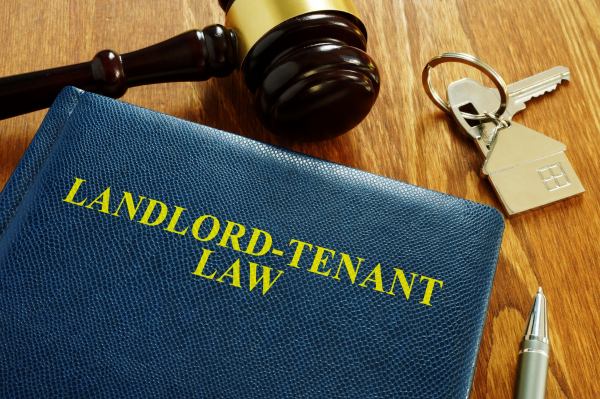Facing the situation of eviction can be a difficult and emotional experience for landlords and tenants alike. However, it’s important to remember that even in challenging situations, handling evictions with compassion can make a significant difference, and it’s important to get positive results.
In this article, we’ll explore practical steps you can take to navigate the eviction process in CT with empathy and understanding, all while complying with Connecticut laws and policies.
Essential Steps for Supporting Tenants in Connecticut
Handling the difficult process of eviction while maintaining empathy and support for tenants is Important for landlords in Connecticut.
Here are steps to ensure a professional approach:
- Understanding the Situation
Before moving forward with any eviction proceedings, it’s important to clearly understand the reasons behind it. Understanding whether the tenant is struggling financially, facing job loss, or experiencing other hardships is crucial. By empathizing with their situation, landlords can approach the eviction process with greater sensitivity, considering alternative solutions before settling for eviction.
- Open Communication
Effective communication is an important step in handling evictions with compassion. Keep an open and honest conversation with your tenant about the problem and what’s happening. Listen carefully to their concerns and discuss possible solutions collaboratively. When you show you understand and want to help, it builds trust and makes for a better landlord-tenant relationship.
- Exploring Alternatives
Eviction should be considered a last option after exploring all possible alternatives. Do you have any alternative arrangements, such as a flexible payment plan or temporary rent reduction, that could address the issue at hand?
Additionally, connect tenants with relevant resources and support services available in Connecticut, such as housing assistance programs or legal aid organizations.
- Following Legal Procedures

Even though you want to handle evictions compassionately, you must follow the legal guidelines provided by the Connecticut Judicial Branch. Learn about the particular Connecticut eviction rules and regulations that apply to your case. Respecting the current legal structure works to maintain equity and safeguards the rights of all parties.
- Support
Tenants may find eviction to be a difficult and distressing process. As a landlord, you can simplify the transition of tenants by providing help and direction. Tenants should be informed about their rights, the resources at their use, and needs-specific assistance programs. Reliability and genuine concern for their welfare could reduce the emotional burden of being evicted.
- Maintaining Respect
Throughout the eviction process, maintaining respect for the tenant is paramount. Avoid engaging in aggressive or hostile behavior, and treat the tenant with dignity and courtesy at all times. While asserting your rights as a landlord, it’s possible to uphold professionalism and compassion simultaneously.
Additional Questions Related to Eviction
How do I fight an eviction in CT?
Tenants in Connecticut have various options when it comes to fighting an eviction. First of all, Review the eviction notice carefully, and if needed, get legal advice. Attend all court hearings and respond to the eviction notice within the allotted time. Provide any supporting documentation or information, such as invoices or records of property repairs, to back up your argument. To find a solution that works for both of you, think about talking with the landlord. Tenants may also contact tenant advocacy groups or legal aid organizations for assistance if necessary.
What is a good cause for eviction protection in CT?
In Connecticut, laws or rules preventing landlords from evicting tenants without a good reason are known as good cause eviction protections. Landlords who want to start the eviction process against a tenant must have “good cause,” or a valid reason. Examples of good reasons include failure to pay rent, violating the terms of the lease, causing property damage, or engaging in illegal activities on the property. Tenants are protected from unjustified or unfair evictions and have their housing stability guaranteed by good cause eviction protections.
What are the ways by which tenants can be protected against eviction?
Tenants in Connecticut can be protected against eviction through various legal mechanisms and tenant rights. Some key ways include:
- Understanding the terms of the lease agreement and adhering to its requirements.
- Knowing and asserting your rights and protections as a tenant, such as the right to habitable living conditions and proper notice before eviction.
- Seeking legal assistance or representation if faced with an eviction notice or court proceedings.
- Exploring alternative options, such as negotiating with the landlord or accessing rental assistance programs, to avoid eviction.
- Advocating for stronger tenant protections and supportive housing policies at the local or state level.
How long does the eviction process take in CT?
The eviction process timeline in Connecticut can vary depending on various factors, including the specific circumstances of the case and court backlog. Generally, the process typically takes several weeks to several months to complete. It typically begins with the landlord serving the tenant with a written notice of eviction, followed by a court filing and scheduling of a court hearing.
Furthermore, during the hearing, both parties present their arguments, and the judge issues a ruling. If the eviction is granted, tenants may be given a certain amount of time to vacate the property before enforcement actions are taken. However, tenants have the right to appeal the eviction decision, which can further extend the process.
Conclusion:
Handling evictions with compassion is not only ethically commendable but also conducive to building positive relationships and minimizing the emotional impact on all parties involved. By understanding the situation, communicating openly, exploring alternatives, following legal procedures, offering support, and maintaining respect, landlords can navigate the eviction process with empathy and fairness. Idoni Management offers guidance and support every step of the way.
Contact us to learn more about our compassionate approach to property management. Ultimately, by approaching evictions with compassion, landlords contribute to creating a more compassionate and supportive community environment.





